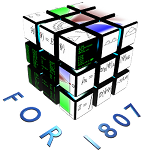Recently, there have been a number of very promising new developments in numerical methods for strongly correlated quantum systems. These methods include quantum Monte Carlo, the density-matrix renormalization group and its generalizations, and self-consistent dynamical cluster methods. The aim of this proposal is to form a coherent network of active researchers in Germany, Austria, and Switzerland, who have made significant contributions to this progress in numerical methods, in order to share expertise and ideas as well as to develop efficient algorithms for the current generation of high-performance computing hardware. Applications include strongly correlated materials, nanostructures, and cold atomic gases. There is potential to make significant advances in long-standing fundamental problems in correlated quantum systems such as frustrated magnetism, doped Mott insulators, and interacting bosonic and coupled fermion-boson systems.
Principal Investigators
- Prof. Dr. Fakher F. Assaad , Julius-Maximilians-Universität Würzburg (speaker)
- Prof. Dr. Reinhard M. Noack, Philipps-Universität Marburg (cospeaker)
- Prof. Dr. Maria Daghofer, Universität Stuttgart
- Dr. Philippe Corboz, Eidgenössische Technische Hochschule Zürich*
- Prof. Dr. Fabian Heidrich-Meisner, Georg-August-Universität Göttingen
- Dr. Martin Hohenadler, Julius-Maximilians-Universität Würzburg
- Prof. Dr. Andreas Honecker, Georg-August-Universität Göttingen*
- Prof. Dr. Eric Jeckelmann, Gottfried Wilhelm Leibniz Universität Hannover
- Prof. Dr. Corinna Kollath, Universität Bonn
- Prof. Dr. Andreas Läuchli, Universität Innsbruck
- Prof. Dr. Thomas Pruschke, Georg-August-Universität Göttingen†
- PD. Dr. Salvatore R. Manmana, Georg-August-Universität Göttingen
- Dr. Frank Pollmann, Max-Planck-Institut für Physik komplexer Systeme, Dresden
- Prof. Dr. Ulrich Schollwöck, Ludwig-Maximilians-Universität München
- Prof. Dr. Matthias Troyer, Eidgenössische Technische Hochschule Zürich*
- Prof. Dr. Stefan Wessel, RWTH Aachen Universit
*PI during the first funding period †Deceased
We mourn the death of T. Pruschke who played a central role in setting up the research unit. We have lost a friend and dedicated researcher.
Project titles of the second funding period:
- P1: Matrix-product-state-based quantum impurity solvers
U. Schollwöck - P2:Density matrix renormalization group in hybrid momentum space
R. M. Noack - P3: Efficient time evolution of quantum many-body systems in 2D with matrix product states
F. Pollmann, U. Schollwöck - P4: Advanced wave-function based methods for electron-phonon coupled systems
F. Heidrich-Meisner, E. Jeckelmann - P5: Action-based quantum Monte Carlo approach to fermion-boson lattice models
M. Hohenadler, F. Assaad - P6: Spin dynamics of exotic quantum magnets
S. Wessel, F. Assaad - P7: Finite-temperature dynamics with matrix product state and cluster approaches
S. R. Manmana, M. Daghofer - P8: Exact diagonalization at the petaflop scale
A. M. Läuchli - P9: Entanglement entropies and spectra of interacting fermions from quantum Monte Carlo simulations
F. Assaad, S. Wessel, A. M. Läuchli - P10: Ultracold bosonic gases coupled to an optical cavity mode
C. Kollath
Project titles of the first funding period:
- P1: Matrix-product-state-based quantum impurity solvers
R. M. Noack, U. Schollwöck , E. Jeckelmann - P2: DMRG and tensor networks in momentum space
R. M. Noack , E. Jeckelmann, U. Schollwöck - P3: Tensor network algorithms for two-dimensional strongly correlated lattice systems
P. Corboz, M. Troyer, U.Schollwöck, R. Noack. - P4: Time evolution using DMRG methods for spin and fermionic systems coupled to bosonic degrees of freedom
F. Heidrich-Meisner E. Jeckelmann, U. Schollwöck - P5: Action-based quantum Monte Carlo approach to fermion-boson lattice models
M. Hohenadler , F. F. Assaad, T. Pruschke. - P6: Dynamics of exotic quantum magnets
S. Wessel F. F. Assaad, A. Honecker. - P7: Cluster methods for spin systems
T. Pruschke , A. Honecker, S. Wessel. - P8: Exact diagolization at the petaflop scale
A. Läuchli , A. Honecker
